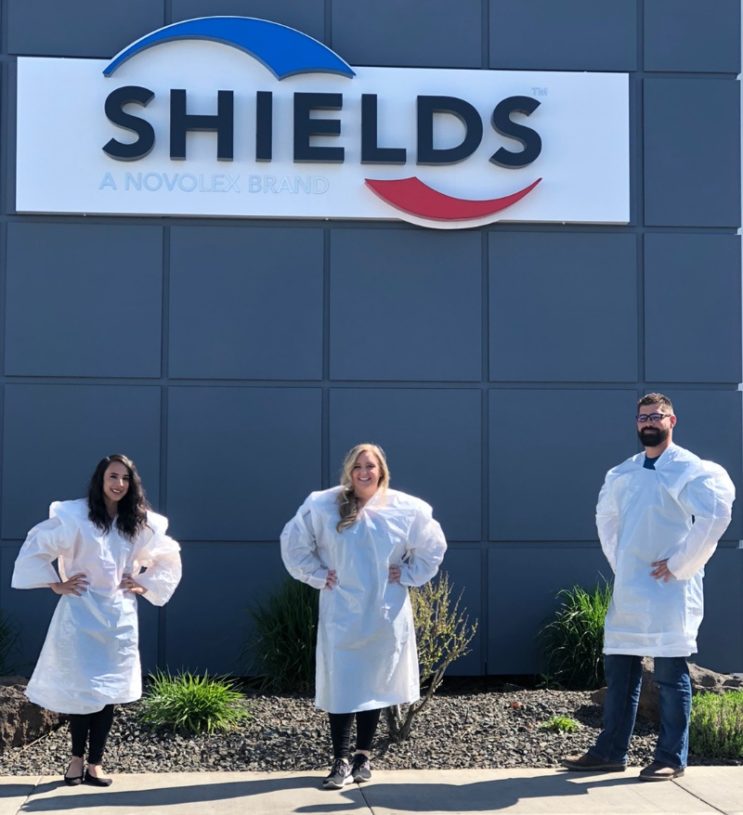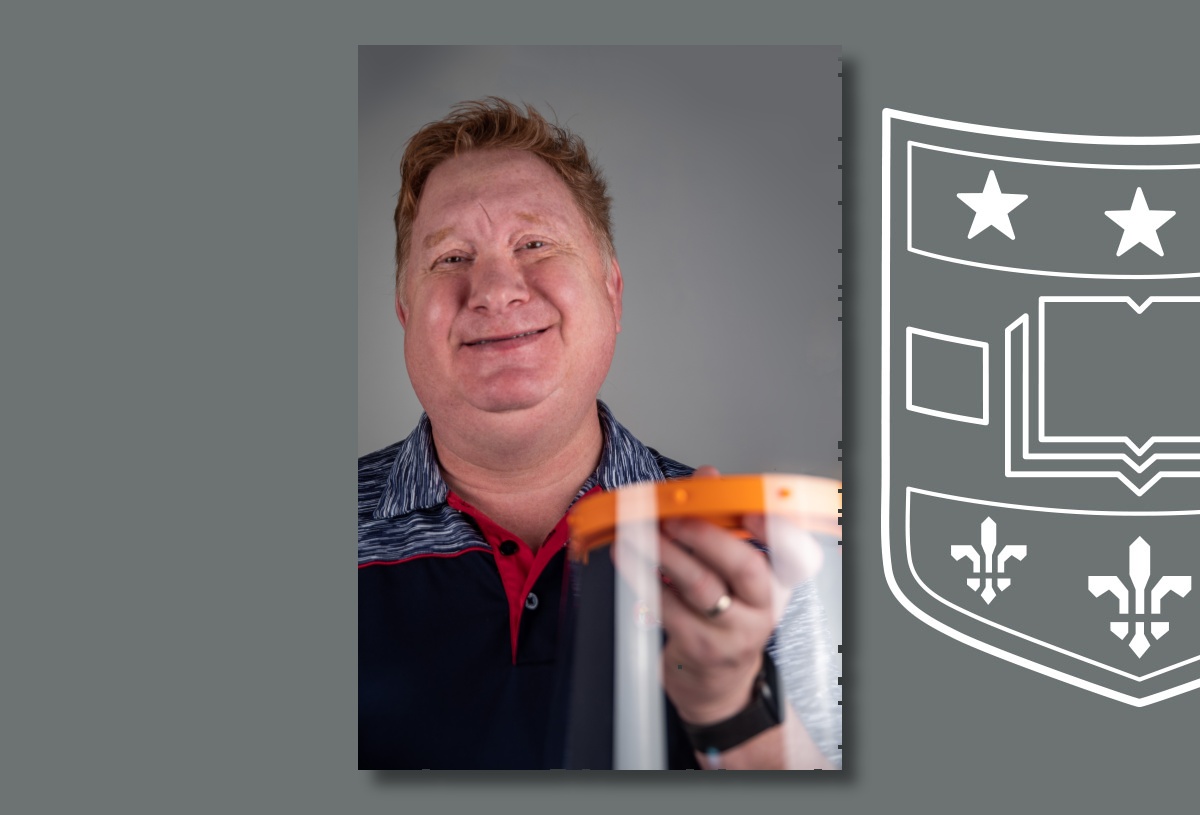Before the coronavirus pandemic, the company’s portfolio included a range of packing products and industrial goods—and almost no medical equipment.
That changed in early March. In just weeks, the firm pivoted its manufacturing capacity to design and produce critically needed pieces of protection for under-resourced healthcare workers—and WashU Olin alumnus Phil Rozenski is one of the people at the center of that pivot.
Today, Novolex is producing more than 6 million isolation gowns and more than 2 million face shields each month—products the firm designed and launched in weeks.
“Early in the COVID-19 pandemic, multiple associations and state governments asked me if we made various medical supplies—items that faced critical shortages across the globe,” said Rozenski, EMBA 2011. “The direct answer was no—but it got me thinking.”
As Novolex’s vice president of public affairs, Rozenski connects the company with local governments, trade associations, the communities that surround their communities and others. In that role, he heard from organizations alarmed by anticipated shortages for personal protective equipment as the reality of the pandemic set in.
He recalled a recent visit to a Novolex facility in Brampton, Ontario, that uses a clear plastic sheeting material to manufacture containers for muffins and other baked goods. His instinct was that the material might be suitable to make face shields, the protective medical visors we now know healthcare workers rely on for their protection.
A plan emerged
With his experience from WashU Olin—and his background as a logistics planner in the US Air Force—Rozenski knew that even if Novolex had the know-how to make medical items, it would take more than an idea. Novolex would need to find the markets, understand the demand, identify the specifications for medical markets and more.
Having been part of the Novolex team for more than 10 years, I knew our people are capable of incredible things. That said, a new product launch can often take months. We had only weeks if we were going to save lives.
Phil Rozenski

He reached out to fellow EMBAs, government agencies, trade associations and other organizations. He needed to know more before he could bring the challenge to Novolex’s team such as who would need the items, how many, and how long demand would last.
“Our company may potentially be part of the solution,” Rozenski wrote to fellow EMBAs in early March. “But we need your help in connecting with existing suppliers and other parties so we can bring our manufacturing capabilities to the fight.”
Immediately, emails started flooding back and he found that Novolex could indeed contribute to addressing the critical shortage. The contribution first began with a donation of 49,000 pounds of plastic sheet. Soon after, Rozenski and Novolex’s Adrianne Tipton, senior vice president of innovation, worked on sweeping away obstacles to design and launch a Novolex face shield.
Rapid results
“Within a week, we were stamping these face shields out. Within two weeks, we were manufacturing the headgear,” Rozenski said.
Assembling the right team meant engineers in the group brought up other ideas. One group worked out a way to retool machines that normally make trash can liners and food-grade produce and freezer bags to produce another piece of critically needed protection: isolation gowns for healthcare workers.
“Within two days, we had prototyped a gown with sleeves—something we never made before. Within a week we were shipping them,” he said. By May 1, the company had shipped 10 million. “To have something you don’t even do in the market in a week is amazing.”
The Novolex team has generated three or four versions of the gowns and other facilities are looking at other methods to do the same.
In addition to the millions of face shields, headgear and gowns Novolex now produces, the company is selling its clear plastic sheeting to other companies—companies that make hundreds of thousands more face shields as well. In total, Novolex has seven facilities producing some sort of medical supplies needed to fight COVID-19.
Rozenski said that being an EMBA grad helped prepare him to be a leader in this effort and also gave him networks needed in the journey as well.
“It wasn’t just a business connection, it was a national crisis,” Rozenski said. “This is a market that didn’t exist for us before March 1.”

